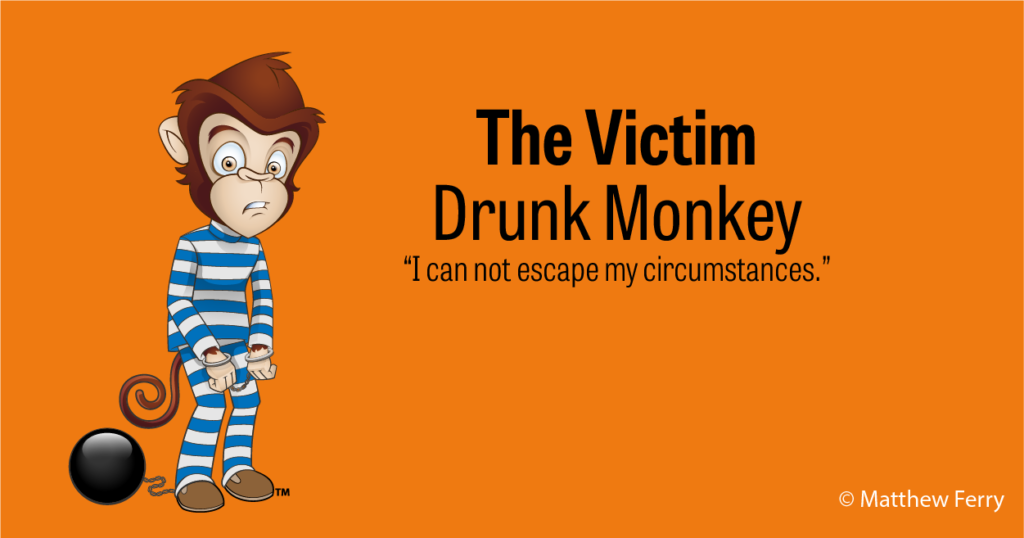
Enlightenment creates the power to respond effectively to the adversities you face in your life. One of the master skills of the enlightened being is to create meaning that is empowering. I call this skill Recontextualization.
Recontextualization is the skill of describing the conditions and circumstances in a way that create an empowering reality for you. Very simply… If you’re going to make things up, you might as well make things up that feel good.
Be honest with yourself. You don’t know what happens after you die. Everything that you know is a likely story. It is something that somebody else told you, it’s something that you observed. Grandma was here, then she died, then we buried her in the ground. She must still be in the ground. Okay. But was the body Grandma? We don’t know. You might as well play around with your definitions until you find something that empowers you.
The meaning that you choose, determines your experience, which creates a response and ultimately your results. The meaning you choose determines your experience, which creates a response, and ultimately your results. Your results are going to come from your response.
Responsible means you are able to respond. Using an enlightened perspective gives you a greater capacity for responding effectively. When you know that you are infinite, fear doesn’t distort your thinking.
It doesn’t mean you’ll always know what to do. But, in your enlightened state, you will mess things up and you will not get the results that you want. That is unavoidable. The difference will be your ability to respond. You’ll think, “Hmm? That’s interesting”, rather than thinking you’re a loser.
When you think that messing things up and not getting what you want is interesting, you are free to try something else. You aren’t burdened by irrational fears. When you think you’re a loser, you run away, you don’t want anyone to know that you actually don’t fit in, and you’re no good, and you can’t do it.
The enlightened perspective creates responsibility; able to respond.
There were three umpires at training that day; a master umpire, a novice, and an experienced umpire. They were in the dugout beforehand. And the master umpire was doing some training with the other two.
Before he starts the training, he looks at these two guys and he says, “All right, you two, how do you call a strike?” And the young guy, eager, jumps in, “Oh, well, I look where the pitcher’s throwing, I watch him. As it comes in, I look to see, is it in the strike zone, and then I call it a strike when it’s in the strike zone.”
The master umpire shakes his head no and looks at the other guy, “How about you?” The more experienced guy thinks for a moment and then says, “Well, look. It’s either in the strike zone or it’s not.” The master umpire shakes his head in disappointment.
Both guys were really confused. The master Umpire He looks at them and says, “Guys. The ball ain’t nothing ’till you call it.”
And that’s what I’m saying to you… “Your life ain’t nothing until you call it.”
Example: It’s lunchtime. You need to have lunch and get back to work. The restaurant is behind and your time is running out. The default response is to go into a survival state with some stress and anxiety.
 If you are unconscious, The Drunk Monkey will create a definition that you’re a victim of the situation. It will start stressing you out by saying, “I need to be back by 1pm! I’m not going to get your lunch! I’m going to be hungry, and I won’t be able to concentrate the rest of the day.” The Drunk Monkey defaults into the victim, “What am I going to do? I can’t believe it! Everybody else got their lunch! Boo hoo and what about me!”
If you are unconscious, The Drunk Monkey will create a definition that you’re a victim of the situation. It will start stressing you out by saying, “I need to be back by 1pm! I’m not going to get your lunch! I’m going to be hungry, and I won’t be able to concentrate the rest of the day.” The Drunk Monkey defaults into the victim, “What am I going to do? I can’t believe it! Everybody else got their lunch! Boo hoo and what about me!”
With practice you catch The Drunk Monkey going into a survival state and you use Recontextualization to get back into a thriving state. You might say, “Wow, they must be really slammed. I think I’m going to have to create an alternative way to get some nutrients in my body. I wonder if I can cancel my lunch so that I can take action and do what I need to do to fulfill my commitment?”
It is the exact same scenario but using different language creates a different experience and ultimately different results.
The first version of you shows up late to work playing the victim and whining, “It’s not my fault that I’m late.” and you didn’t have the fortitude to solve the problem. So now you are hungry which makes it worse. Your moping around, “I don’t have any blood sugar, and I can’t concentrate.” Now your whole day begins to fall apart. But it’s all a show. You were unconscious, unwilling to respond and now you are playing the victim. Which essentially means you are pretending to be powerless.
Whereas the version of you who took the enlightened approach went and got a Snickers bar or something. You got something to at least put in their mouth, or hit up another friend, and said, “I’m not getting my lunch in time, can I have some of your sandwich?” You took care of it. You were creative and resourceful. Now you are at work fully present because they were able to respond.
Recontextualization is the skill of describing the conditions and circumstances in your life in a way that creates an empowering reality for you. This is a master skill required to maintain your enlightened perspectives.
Click the image below to get 23 Quiet Mind Daily Practices that are guaranteed to increase your consciousness.

